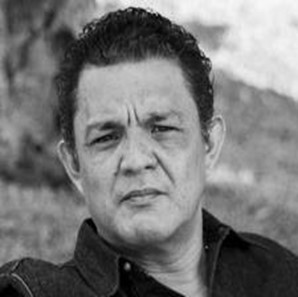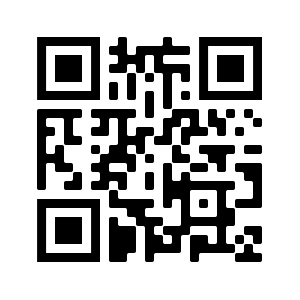Z7_89C21A40LGRJC0A6CAE7SVL2O1
 Portal U de A - Cabezote - WCV(JSR 286)
Portal U de A - Cabezote - WCV(JSR 286)
Z7_89C21A40LGRJC0A6CAE7SVL240
 Signpost
Signpost
Fichas
Z7_NQ5E12C0LO02E0QOBJGLM10OC2
 INNOVACIENCIA
INNOVACIENCIA
Research group
Spanish
INNOVACIENCIA
Academic Unit: Faculty of Education
OECD
Discipline
Social sciences
Subdiscipline
Educational sciences
Strategic Focus
The group seeks to understand how scientific education can be improved by the conjoint use of alternative educational strategies based on problem solving and creativity development, CTSA (science, technology, society, and environment) and CSC (science–art–body) approaches, and contemporary optics such as using art for education in science and embodied cognition.
Additionally, we seek to delve into the contemporary theoretical presuppositions of scientific education aiming for a sensible reason-oriented education that moves away from instrumental reason and incorporates the integral being and its vitality for science teaching.
Research Areas and Topics
- Modeling and problem solving.
- Science, technology, society, and environment approach.
- Scientific representations.
- The Science–Art–Body interface and its role within sciences teaching.
Sustainable Development Goals (SDGs)

Group Coordinator

José Joaquín García García, PhD
PhD in Didactics of Experimental Sciences
Universdad de Granada, Spain.
Group Coordinator Email
Scientific Cooperation
Collaborative Relationships
- RIGES: Research network for knowledge management.
- CIEAC: CODEMA center for advanced research and studies.
Notable Projects
- Approaching problematic situations by means of a curriculum environmentalization approach understood as a didactic model. An application to teaching of the theory of gas behavior.
- Use and comprehension of cartesian graphic representations included in text-books of experimental sciences (Chemistry) and used during its teaching process (Chemistry).
- Complex interactions between modeling and multi-register representation processes in experimental sciences.
- Sensible reason, the possibilities offered by the theater semiotic register for science teaching.
- Pedagogies of the self. Present history of teaching as a practice of “saying,” social truth, and singularities of “saying” in multiple cases registered in public schools from the municipality of Medellin.
Main Research Results
- Didáctica de las ciencias: resolución de problemas y desarrollo de la creatividad (Didactics of sciences: problem solving and creativity development) ISBN 9789582006792
- Enseñar física a través del teatro (Teaching physics through theather). DOI: 10.31910/rudca.v23.n2.2020.1139
- Ciencia consentida: resignificando los sentidos en la enseñanza de las ciencias (Consented Science: Resignifying the Senses in the Teaching of Science). DOI: 10.17227/ted.num47-11337
- Teatro para aprender, enseñar y curar: Usos académicos y terapéuticos del teatro (Theater for learning, teaching, and curing: Academic and therapeutic uses of theater). DOI: 10.2307/j.ctvpwhcq8
- El drama creativo una herramienta para la formación cognitiva, afectiva, social y académica de estudiantes y docentes (Creative drama: a tool for cognitive, emotional, social and academic development of students and teachers). DOI: 10.11600/1692715x.1520430082016
- La razón sensible en la educación científica: Las potencialidades del teatro para la enseñanza de las ciencias (Sensible reason in scientific education: the possibilities offered by theater for science teaching). DOI: 10.14482/zp.26.10204.
Research Portafolio
- Development of didactic strategies and training of experimental sciences teachers in fields such as problem solving, creativity development, and CTSA (science, technology, society, and environment) and CSC (science–art–body) approaches.
- Formulation of projects that delve into the science–art interface in science teaching, and teacher training in this subject.
- Formulation of projects that delve into the science–art interface in science teaching: embodied cognition and teacher training in this subject.

More Information

Z7_89C21A40LGRJC0A6CAE7SVL241
 Portal U de A - Redes Sociales - WCV(JSR 286)
Portal U de A - Redes Sociales - WCV(JSR 286)
Z7_89C21A40LGRJC0A6CAE7SVL2K0
 Footer - Udea - JSR(286)
Footer - Udea - JSR(286)
Z7_89C21A40LGRJC0A6CAE7SVL2K2
 Portal UdeA - Iconos Footer - WCV(JSR 286)
Portal UdeA - Iconos Footer - WCV(JSR 286)
Universidad de Antioquia | Vigilada Mineducación | Acreditación institucional hasta el 2033 | NIT 890980040-8
Recepción de correspondencia: calle 70 No. 52 - 21 | Apartado Aéreo 1226 | Dirección: calle 67 No. 53 - 108 | Horario de atención
Conmutador: [57 + 604] 219 8332 | Línea gratuita de atención al ciudadano: 018000 416384 | Fax: [57 + 604] 263 8282
Peticiones, quejas, reclamos, sugerencias, denuncias, consultas y felicitaciones
Política de tratamiento de datos personales
Medellín - Colombia | Todos los Derechos Reservados © 2020
Recepción de correspondencia: calle 70 No. 52 - 21 | Apartado Aéreo 1226 | Dirección: calle 67 No. 53 - 108 | Horario de atención
Conmutador: [57 + 604] 219 8332 | Línea gratuita de atención al ciudadano: 018000 416384 | Fax: [57 + 604] 263 8282
Peticiones, quejas, reclamos, sugerencias, denuncias, consultas y felicitaciones
Política de tratamiento de datos personales
Medellín - Colombia | Todos los Derechos Reservados © 2020







